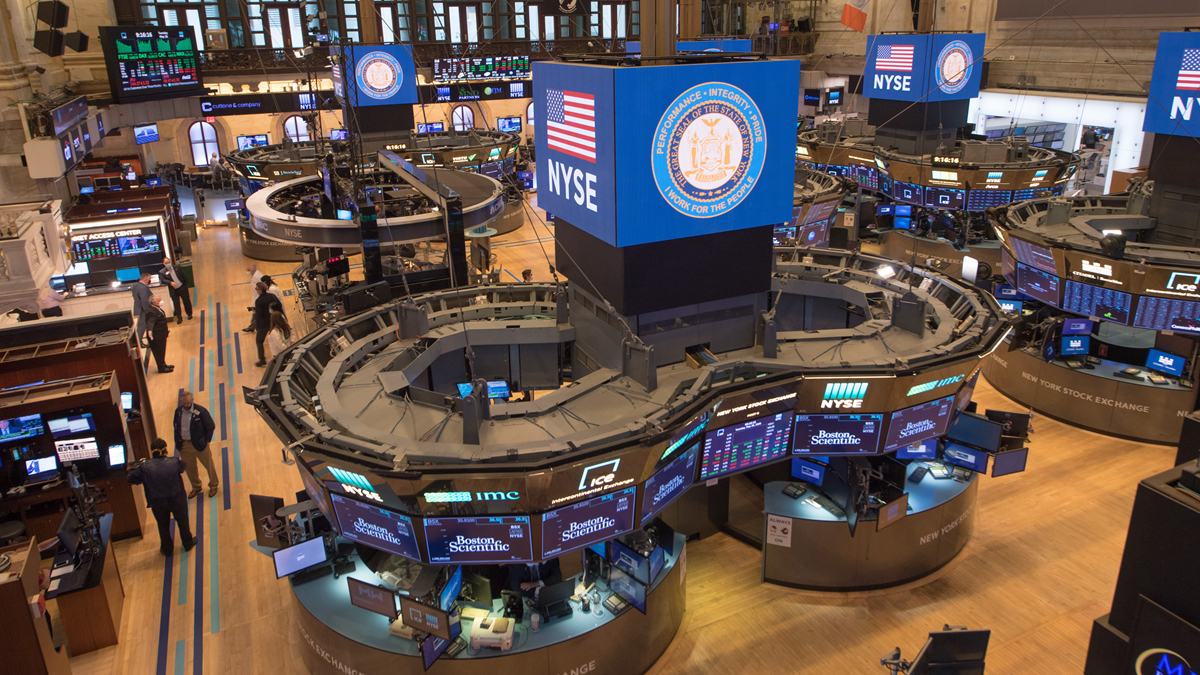
The Wall Street sign is pictured at the New York Stock Exchange (NYSE) in the Manhattan borough of New York City, New York. /Reuters
The Wall Street sign is pictured at the New York Stock Exchange (NYSE) in the Manhattan borough of New York City, New York. /Reuters
Editor's Note: Ken Moak taught economic theory, public policy and globalization at the university level for 33 years. He co-authored a book "China's Economic Rise and Its Global Impact" in 2015. The article reflects the author's opinions, and not necessarily the views of CGTN.
It is not surprising that the U.S. Federal Reserve's (Fed) low interest rate policies of zigzagging between 0 percent and 0.25 percent are ineffective in reversing the downward economic trajectory, because in a recession neither consumers nor investors have an appetite for spending. And the trillions of dollars that the government handed out to consumers and businesses to weather the COVID-19 pandemic had only a short-term positive effect.
The impotency of expansionary fiscal and monetary policies prompted some to urge the Fed to introduce a negative interest rate policy (NIR), costing the economy more to save than to consume and investment. The idea is not new and indeed NIR became a "new normal" monetary policy in Japan and some countries in Europe. But the policy did not work and might have had contributed to further declines in these nations' economies. The reason is not difficult to surmise: NIR reduces real wealth via inflation and decreases in the value of bank deposits, diluting the buying power of nominal wealth, the actual amount of assets held by the economy.
Real wealth reduction is harmful to the economy because it is a major determinant of private consumption and investment. Particularly hard hit will be pensioners who live largely on savings. The general population will also not be spared because most people invest in "riskless" financial assets such as term deposits, government bonds and "blue chip" stocks issued by established enterprises such as Boeing.
However, the price of an enterprise's stocks is determined by its profit expectations as well as the value of the company's assets. During a recession, both would likely fall, thereby reducing the investors' real wealth or income.
Government bonds are repaid with inflated dollars and taxable interest income. Suppose an investor who paid the government a 20-year term government bond of 1,000 U.S. dollars, for instance, he/she will receive 1,000 dollars plus annual interest incomes for the duration of the term. But the purchasing power of the 1,000 dollars that the investor lent to government will be worth far less if anything in terms buying power 20 years from the day that he/she bought the bond.
Adding "salt to injury," the annual interest incomes are taxable income or the government takes back a portion of what it paid the investor. In short, inflation and taxes lead to negative returns for bondholders.

New York Stock Exchange in the Manhattan borough of New York City, New York, U.S.. /CFP
New York Stock Exchange in the Manhattan borough of New York City, New York, U.S.. /CFP
Furthermore, it is the president's politically-driven policies that were responsible for current economic malaise. For example, the United States' trade wars against China and other countries not only failed to reduce the deficit or bring manufacturing home, they dented the economy further. The New York Federal Reserve Bank, Columbia and Princeton Universities estimated that Trump's tariffs on Chinese and other countries' goods reduced U.S. income by 1.4 billion dollars per month because the excise taxes were passed on to consumers.
The politically-drive budget process in which most taxpayers' money was spent on national defense rather than of education, healthcare and infrastructure repair add stress to economic recovery. Underfunding the socio-economic enhancement programs erodes the quality and health of the labor force and transportation efficiency, reducing inefficiency and competitiveness.
To turn U.S. economic woes around thus requires a political mindset change. On this note, eliminating the tariffs against imports from China and other countries would be a good start. Not having to pay the tariffs would increase imports, reduce production costs and consumer goods prices that will eventually lead to sustainable economic growth.
Importing is an industry with multiplier effects. Buying more foreign products increases the business prospects of the brokerage, logistics, transportation, financial and other supporting sectors. In the U.S., as elsewhere, these businesses employ millions of workers. The workers and their families buy food, shelter clothing and other necessities, enhancing economic growth.
China would likely reciprocate, buying large quantities of technology products, foodstuffs and energy that the U.S. has in abundance. Selling hundreds of billions of dollars of products to China would increase the financial viability of technology firms, affording them to stay ahead of the technology game.
Sadly, the Trump administration and a large number of the Congress are blinded by their emotion and ideology, seeing China as a threat rather than an opportunity.
(If you want to contribute and have specific expertise, please contact us at opinions@cgtn.com.)